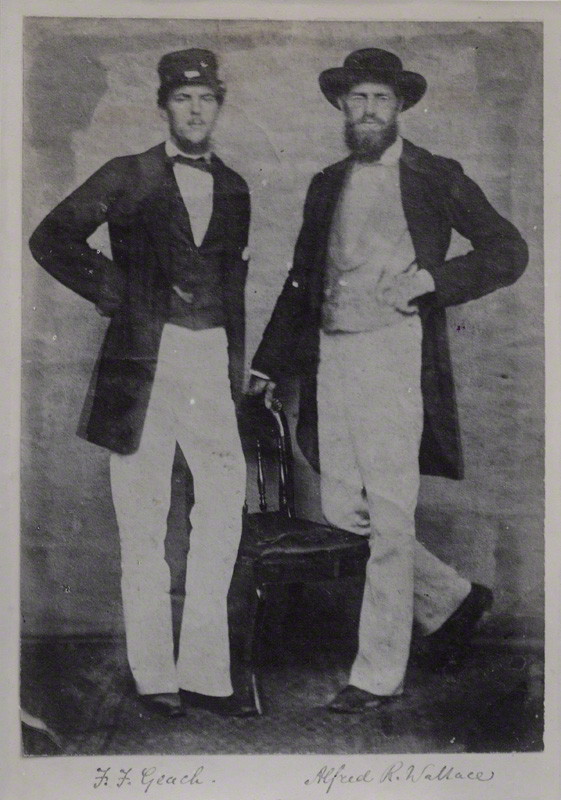Erasmus Alvey Darwin has rheumatism; his sisters complain of his bad temper but CD thinks him very good tempered. CD has received a new cabinet. [This is the first of six entries written in a "Memorandum book" comprising four sheets folded into a gather and sewn together in book form. The entries are in the style of letters addressed to an unnamed friend and are dated between 1 and 12 January 1822, shortly before CD's thirteenth birthday. As they were written straight into the memorandum book, it is clear that they were never sent through the post, but were either to an imaginary recipient, or intended to be read by someone in the household, possibly CD's youngest sister, Emily Catherine Darwin (Catherine).]
CD's luggage is frightfully bulky, though he has been as economical as possible. Has made financial arrangements for his expenses.
Plans to study mathematics during voyage.
Longs to be on the other side of the Horn; tired of these countries. Natural history makes him continue. He now knows it will remain his favourite pursuit for the rest of his life.
Comments on slavery.
Will have additional space on board and a servant [Syms Covington] who will help him with the collection of birds and quadrupeds.
Asks for books, a lens, and four pairs of shoes.
On fossils ([Megatherium], etc.), plants, shells sent and new ones found; geological observations. Asks for help in understanding cleavage and planes of deposition.
A new species of ostrich. Cites differences in size, colour, nidification, and geographical distribution.
Keeling Islands, his first coral lagoons; he has been occupied with subject of coral formation for six months.
Very busy at sea rewriting old geological notes. Has difficulties with writing.
FitzRoy has proposed joint account of the journey, combining CD's journal with his own.
Looks forward with anxiety to Henslow's reaction to the geological notes.
Reports on the effects of inbreeding in dogs and the results of crossing Canada and common geese.
Replies to CD's questions on plant hybridisation and laws of inheritance. Rejects predominant transmission of characters by established forms. Males show predominance, but congeniality of parents' constitution to climate and soil more important. No correlation between hybridisation and variability, cultivation, and geographical distribution. Rejects reversion.
Describes experiments in Hippeastrum in which pollen from another species proved more fertile than plant's own pollen.
Did not intend to say that crossing is inimical to fertility.
CD is too dull and languid to see Mr Bicheno but will be glad to answer his questions if he writes.
Asks WY to ask J. Sebright "whether the cross with white bantam brought back any of the ""secondary male characters"" to the hen-cock breed".
Defines the term "typical species" and discusses its use among zoologists. Cites example of type of Carnivora. Comments on general law of development of parts in animals. Cites teeth of Carnivora.
Sends Lord Enniskillen's account of origin of the Irish yew: transplanted from the wild; propagated by cuttings thereafter. Offspring recently raised from seed are intermediate between common and Irish [weeping] yew.
Darwin Correspondence Project
darwin@lib.cam.ac.uk
© University of Cambridge 2022
Website by Surface Impression



© 2024 University of Cambridge
